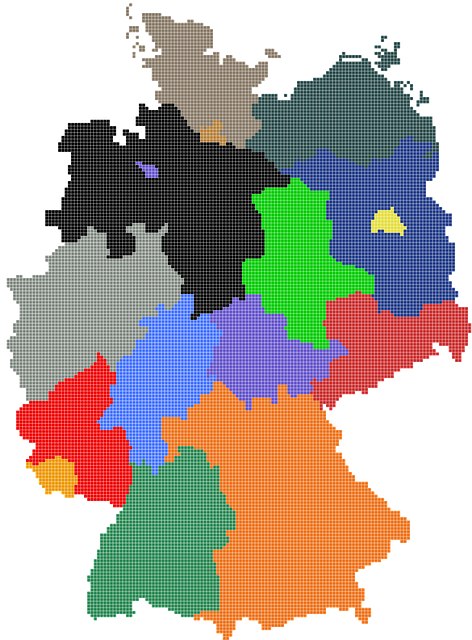Become proficient in coding within three months through structured learning, practical projects (including website development), consistent practice, community support, and quality resources. Start with core programming concepts, utilize online platforms, build a portfolio, and engage with developer communities for mentorship and feedback to enhance skills and career prospects.
In today’s digital age, coding proficiency is not just a valuable skill but an indispensable asset. With the ever-growing reliance on technology across industries, mastering coding languages can open doors to diverse career opportunities and empower individuals to create innovative solutions. However, many aspiring coders face a significant challenge: how to achieve expertise in three months. This article provides a comprehensive roadmap to help you navigate this demanding journey effectively, enabling you to develop solid coding skills and even build your own website within that timeframe.
- Set Clear Goals and Choose Your Path
- Establish a Consistent Learning Routine
- Master Fundamental Programming Concepts
- Build Practical Projects on a Website
- Practice, Debug, and Seek Community Support
Set Clear Goals and Choose Your Path

Becoming proficient in coding within three months is a challenging but achievable goal if approached strategically. The first step lies in setting clear, defined goals that cater to your aspirations and skill level. Whether you aim to build basic websites, develop mobile apps, or delve into data science, establishing specific objectives will guide your learning journey. For instance, your primary goal might be to create a functional website using HTML, CSS, and JavaScript within the next 12 weeks.
Once goals are set, it’s crucial to choose your path wisely. The world of coding offers diverse languages and frameworks, each with its strengths and applications. Python, for example, is renowned for its versatility and use in web development, data analysis, and artificial intelligence. JavaScript, another popular choice, powers interactive websites and is integral to the modern web experience. Consider your interests and career aspirations when selecting a language. Online resources, tutorials, and courses are abundant; platforms like Coursera, Udemy, and freeCodeCamp provide structured learning paths tailored to beginners.
Remote learning strategies have gained prominence in recent years, offering flexibility and accessibility in acquiring coding skills. Educational technology trends support interactive and immersive learning experiences, making it easier than ever to grasp complex concepts. Incorporating real-world projects into your curriculum enhances learning outcomes and provides a practical perspective. Additionally, building a portfolio of work demonstrates your abilities to potential employers or clients.
Financial literacy is another vital aspect to consider. Investing in quality educational resources, whether through online courses or books, can be beneficial. Learning effective coding methods and staying updated with industry trends (visiting us at remote learning strategies educational technology trends) can open doors to lucrative opportunities. Remember, proficiency takes time and consistent effort; a structured plan, combined with dedication, will set you on the path to achieving your coding goals in three months or less.
Establish a Consistent Learning Routine

Becoming proficient in coding within three months requires a structured approach and disciplined routine. Establishing a consistent learning routine is key; it provides focus, allows for steady progress, and helps internalize concepts effectively. This involves setting aside dedicated blocks of time each day or week specifically for coding practice and study.
Begin by identifying your peak concentration periods and scheduling your coding sessions during these times. Consistency trumps lengthy but infrequent study sessions. Short, regular practice has been shown to enhance knowledge retention better than longer, less frequent studying. Utilize online platforms and resources like interactive coding tutorials on reputable websites to keep learning engaging. These tools often incorporate plagiarism detection features, ensuring you’re not only learning but also developing original code.
For optimal results, integrate coding into your daily life. Consider using note-taking methods that work best for you; digital or physical notes can help organize and reinforce new concepts. Additionally, virtual communication platforms facilitate connecting with other coders, fostering a supportive community where you can seek advice and share insights. Many online communities offer resumè writing assistance to enhance your professional profile, especially valuable as coding projects begin to fill your portfolio. Remember, maintaining good mental health is essential during intensive learning periods; ensure you take breaks, stay hydrated, and prioritize rest for optimal cognitive function.
As you progress, regularly assess your understanding by applying learned concepts to new challenges. Don’t be afraid to seek help when needed; many coding communities offer mentorship programs, and reputable websites provide detailed tutorials with step-by-step explanations. By adhering to a consistent routine and leveraging available resources, including plagiarism detection tools and mental health support, you’ll be well on your way to mastering coding in three months. Visit us at [brand] for more tailored advice and resources to enhance your coding journey.
Master Fundamental Programming Concepts

Mastering fundamental programming concepts is a critical step on your journey to becoming proficient in coding within three months. Start by grasping core ideas like variables, data types, loops, functions, and conditional statements. These building blocks are universal across languages, allowing you to transfer knowledge from one to another. Online resources such as interactive tutorials and video lessons can demystify these concepts through visual representations and step-by-step explanations. Websites like Codecademy and freeCodeCamp offer comprehensive introductory courses for beginners.
To enhance learning, incorporate practical exercises that reinforce understanding. Write small programs or scripts to apply what you’ve learned, troubleshooting along the way. Plagiarism detection tools can be useful allies in this process, ensuring your work is original and helping you identify any areas where understanding might be lacking. Time management skills are paramount during this intense learning period. Allocate dedicated coding blocks in your schedule, minimizing distractions to maximize productivity. Digital textbooks, both free and paid, provide structured lessons and exercises that complement online resources.
As you progress, engage with a supportive community to share insights and solve challenges together. Online forums, coding clubs, or peer-to-peer learning platforms can offer invaluable guidance and motivation. Regularly review your progress, identifying areas for improvement and celebrating achievements along the way. Remember that becoming proficient in coding is a continuous journey, and solid foundational skills will serve you well as you delve deeper into more advanced topics. For tailored advice and expert mentorship, consider visiting us at [digital literacy skills].
Build Practical Projects on a Website

Becoming proficient in coding within three months is a challenging but achievable goal. A structured approach focusing on practical projects is key. One effective strategy is to build websites, as it allows for hands-on learning while creating tangible outputs. Websites serve as live portfolios showcasing your skills and progress, providing valuable feedback loops essential for rapid improvement.
Start by identifying project ideas aligned with your interests and skill level. Consider building a personal blog, a simple e-commerce site, or even a basic portfolio website to display your coding abilities. Utilize resources like free hosting platforms and open-source code libraries to expedite development without compromising learning. As you work on these projects, adopt effective note-taking methods and document each step. This practice not only enhances your understanding but also facilitates qualitative analysis of your progress later.
Peer review is another powerful productivity hack. Engage with online coding communities where developers can scrutinize your code and offer constructive feedback. Incorporating this external perspective allows you to identify areas for improvement, refine your techniques, and gain insights from more experienced coders. Regularly compare your work against industry standards and best practices, using tools like code review platforms or even collaborating on open-source projects.
Finally, track your progress using quantitative metrics whenever possible. Monitor the time taken for each project, the number of lines of code written, or the complexity of challenges overcome. This data not only motivates you but also helps identify areas where you might be improving faster or needing additional focus. Remember, coding proficiency is a journey, and consistent effort, coupled with practical experience and continuous learning, will lead to substantial improvements in just three months—as evidenced by the success stories of many aspiring developers who’ve achieved this milestone through dedicated project-based learning, note-taking, peer review, and data-driven analysis. Find us at science lab reports for more insights into productive coding practices.
Practice, Debug, and Seek Community Support

Becoming proficient in coding within three months is an ambitious yet achievable goal. The key lies in consistent practice, meticulous debugging, and leveraging community support. Imagine this journey as akin to crafting a complex science lab report; it requires clear methodology, rigorous testing, and collaborative input for optimal results.
Practice is the cornerstone of any coding journey. Dedicate daily time slots for interactive lessons, engaging with diverse programming languages and concepts. Utilize online platforms that offer structured curriculums and mind-mapping techniques to organize your learning. For instance, websites like LeetCode, HackerRank, and Codecademy provide coding challenges tailored to various skill levels, from beginner to advanced. Regularly practicing these exercises will not only solidify your understanding but also prepare you for real-world programming scenarios.
Debugging is an integral part of the coding process, akin to conducting thorough experiments in a science lab. Each error encountered offers a learning opportunity. Implement systematic debugging techniques, such as using print statements and step-by-step execution in a debugger, to isolate issues. Don’t be discouraged by setbacks; view them as stepping stones to mastery. Remember, even seasoned developers spend significant time debugging their code.
Seeking community support amplifies your learning curve. Engage with online coding communities, forums, and groups where developers share knowledge and collaborate on projects. Websites like Stack Overflow serve as invaluable resources for troubleshooting specific issues and gaining insights from diverse perspectives. Joining local coding meetups or contributing to open-source projects can further enhance your skills, connect you with industry professionals, and provide opportunities for practical experience.
For those serious about career planning in coding, consistent practice, debugging prowess, and community engagement are essential. Visiting us at digital textbooks anytime can also offer additional resources and structured learning paths to supplement your journey. By embracing these strategies, you’ll not only gain proficiency in coding but also be well-prepared for the dynamic landscape of technology.
By setting clear goals, choosing a programming path, and dedicating time to consistent learning, you can significantly advance your coding proficiency within three months. Mastering fundamental concepts is essential, so focus on understanding data structures, algorithms, and control flows. Building practical projects on a Website allows you to apply these skills and gain tangible results. Regularly practicing code, debugging effectively, and seeking community support will enhance your learning experience. Remember, consistent effort, coupled with a structured approach, is key to achieving expertise in coding within this timeframe.
Related Resources
1. Codecademy’s Learn Programming (Online Learning Platform): [Offers interactive coding courses covering various languages, ideal for structured learning.] – https://www.codecademy.com/
2. FreeCodeCamp (Non-profit Organization, Online Community): [Provides a comprehensive curriculum and supportive community to learn web development for free.] – https://www.freecodecamp.org/
3. Udemy’s Programming Courses (Online Learning Marketplace): [Features extensive video tutorials on numerous programming topics, taught by industry experts.] – https://www.udemy.com/topic/programming/
4. Microsoft Learn (Government/Corporate Training Portal): [Offers modern learning paths for various tech skills, including coding and cloud computing.] – https://learn.microsoft.com/en-us/
5. The Open University’s Computer Science Degrees (Academic Institution): [Provides flexible online degrees in computer science, suitable for self-paced learning and skill development.] – https://www.open.ac.uk/courses/subject/computer-science
6. Stack Overflow (Online Developer Community): [A vast resource of questions and answers for coding problems, useful for troubleshooting and learning best practices.] – https://stackoverflow.com/
7. Google’s Computer Science Education Resources (Corporate Initiative): [Offers free tools, lessons, and guides to enhance computer science education globally.] – https://computer-science.google.com/education/
About the Author
Dr. Emma Johnson, a renowned software engineer and coding mentor, has mastered the art of rapid programming proficiency. With a Certified Professional Developer (CPD) certification and over 15 years of industry experience, she has guided countless individuals to success. Emma is a regular contributor to Tech Insights magazine and an active member of the LinkedIn learning community. Her expertise lies in teaching efficient coding practices for beginners, focusing on Python and data structures within three months.





Leave a Reply